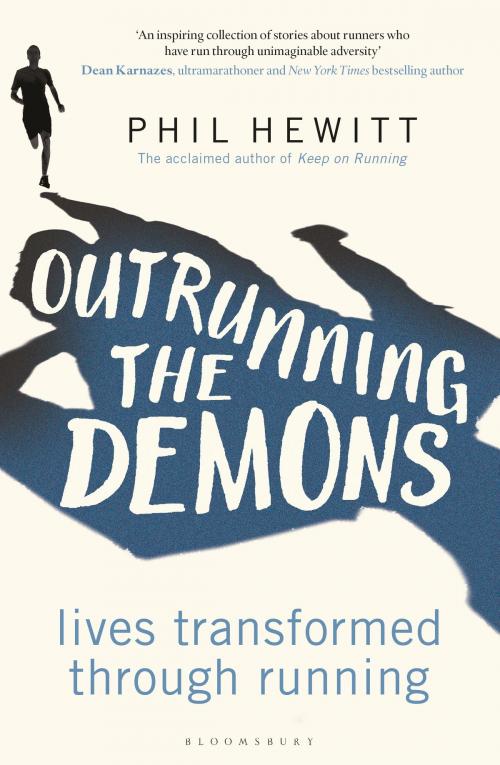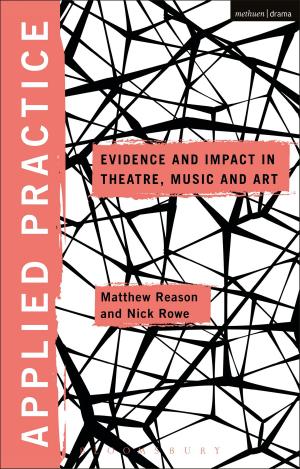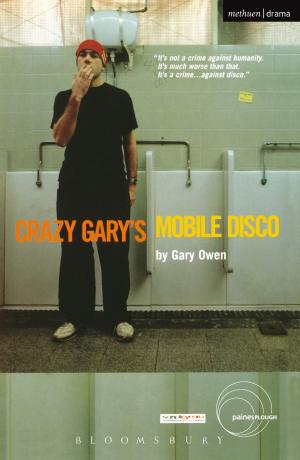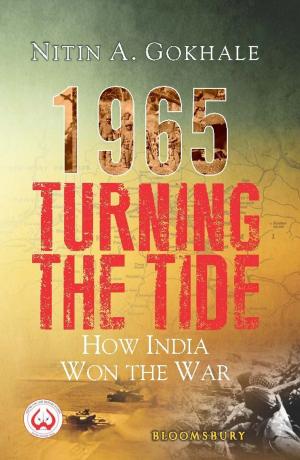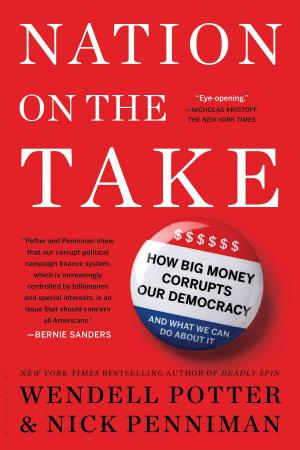Outrunning the Demons
Lives Transformed through Running
Nonfiction, Health & Well Being, Psychology, Counselling, Sports, Running & Jogging, Biography & Memoir| Author: | Phil Hewitt | ISBN: | 9781472956521 |
| Publisher: | Bloomsbury Publishing | Publication: | January 24, 2019 |
| Imprint: | Bloomsbury Sport | Language: | English |
| Author: | Phil Hewitt |
| ISBN: | 9781472956521 |
| Publisher: | Bloomsbury Publishing |
| Publication: | January 24, 2019 |
| Imprint: | Bloomsbury Sport |
| Language: | English |
In recent years, we have seen a growing awareness of the immense therapeutic benefits of going for a run. The cliché tells us that the only bad run is the run you don't go on. For thousands of people, it's much more dramatic than that: just putting their running kit on and getting out the door can be – quite simply – a life-saver.
For people in times of crisis, trauma and physical or mental illness, running is often the means by which they reconstruct fractured, fragmented identity – or indeed the means to a new identity. When normality collapses, running can put it back together again. In the very worst cases, it can actually create a new normality and offer us the chance to move on.
And this will be the subject of this book, an in-depth exploration of just why running can so often seem the answer to everything when you find yourself in extremis. It will be written with insight, humour and understanding, but also with authority and scientific basis.
Phil Hewitt, the bestselling author of Keep on Running: The High and Lows a Marathon Addict, is, regrettably, well qualified to write the book as he has been there himself. He was viciously mugged in South Africa in February 2016. He suffered stab wounds, broken ribs and abdominal injuries and was effectively left for dead in a grim Cape Town suburb.
With already 30 marathons under his belt; and in the first few weeks after the attack, when he could barely walk and suffering acute symptoms of post-traumatic stress disorder, inevitably it was running he turned to. While he could make no sense of what had happened to him, Phil knew that dedicating himself to running – and its possible healing powers – was the only route ahead.
Although the author's experiences will not be the subject of this book, they will certainly inform his approach to it as he looks at runners who have suffered similarly and worse in a wide range of scenarios. The book will cover the themes of Trauma, Bereavement, Depression & Anxiety, Addiction & Alcoholism, Terrorism, Violence/Sexual Abuse, Long-term Health Conditions (cancer, stroke etc) and Eating Disorders.
While dealing with heavy, harrowing subjects, the eventual book will be uplifting and celebratory, an exploration of the strength that the human spirit can muster in our very worst moments – and why so often running can be the key to unlocking resilience we never knew we had.
In recent years, we have seen a growing awareness of the immense therapeutic benefits of going for a run. The cliché tells us that the only bad run is the run you don't go on. For thousands of people, it's much more dramatic than that: just putting their running kit on and getting out the door can be – quite simply – a life-saver.
For people in times of crisis, trauma and physical or mental illness, running is often the means by which they reconstruct fractured, fragmented identity – or indeed the means to a new identity. When normality collapses, running can put it back together again. In the very worst cases, it can actually create a new normality and offer us the chance to move on.
And this will be the subject of this book, an in-depth exploration of just why running can so often seem the answer to everything when you find yourself in extremis. It will be written with insight, humour and understanding, but also with authority and scientific basis.
Phil Hewitt, the bestselling author of Keep on Running: The High and Lows a Marathon Addict, is, regrettably, well qualified to write the book as he has been there himself. He was viciously mugged in South Africa in February 2016. He suffered stab wounds, broken ribs and abdominal injuries and was effectively left for dead in a grim Cape Town suburb.
With already 30 marathons under his belt; and in the first few weeks after the attack, when he could barely walk and suffering acute symptoms of post-traumatic stress disorder, inevitably it was running he turned to. While he could make no sense of what had happened to him, Phil knew that dedicating himself to running – and its possible healing powers – was the only route ahead.
Although the author's experiences will not be the subject of this book, they will certainly inform his approach to it as he looks at runners who have suffered similarly and worse in a wide range of scenarios. The book will cover the themes of Trauma, Bereavement, Depression & Anxiety, Addiction & Alcoholism, Terrorism, Violence/Sexual Abuse, Long-term Health Conditions (cancer, stroke etc) and Eating Disorders.
While dealing with heavy, harrowing subjects, the eventual book will be uplifting and celebratory, an exploration of the strength that the human spirit can muster in our very worst moments – and why so often running can be the key to unlocking resilience we never knew we had.
